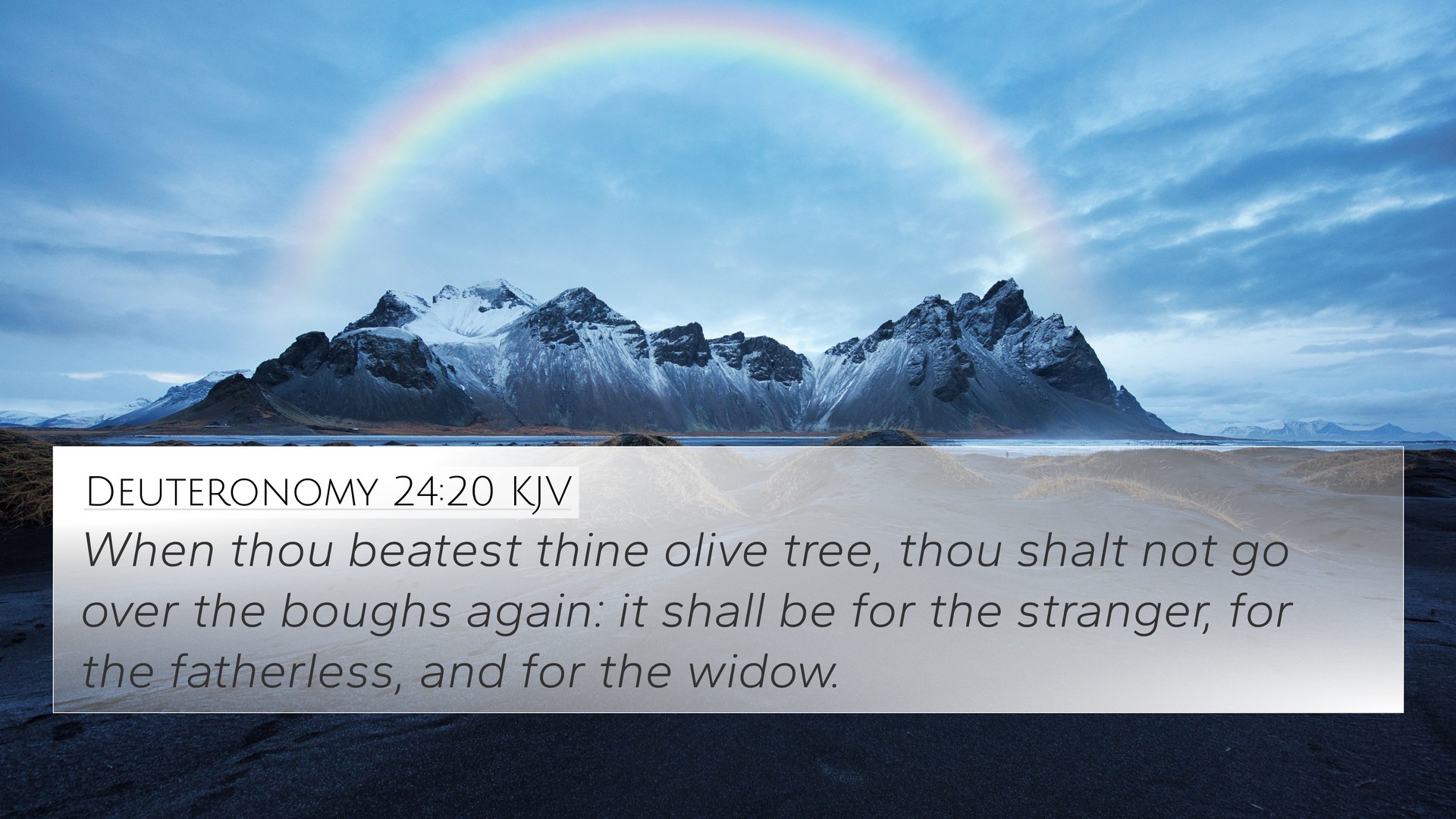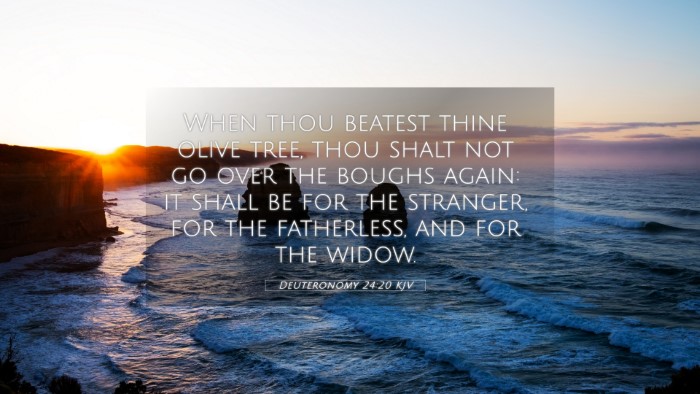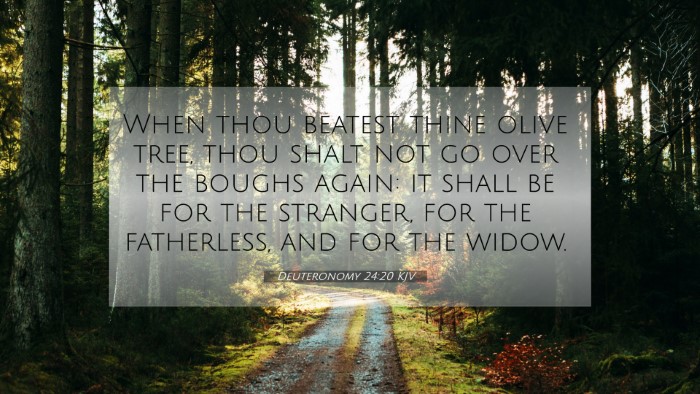Understanding Deuteronomy 24:20
Deuteronomy 24:20 states:
“When you beat your olive trees, you shall not go over the boughs again; it shall be for the stranger, the fatherless, and the widow.”
The verse is part of the broader context in Deuteronomy, where God instructs the Israelites on ethical and social behaviors that reflect His justice and concern for the marginalized. This particular verse emphasizes the importance of leaving resources available for those in need.
Commentary Insights
This verse has been examined by several renowned commentators, providing rich perspectives on its implications:
-
Matthew Henry: Henry highlights that this law was established to foster a spirit of charity and compassion. He points out that the Israelites were to remember their own history of oppression and hence practice kindness towards the less fortunate, specifically "the stranger, the fatherless, and the widow." This approach not only ensured justice but also reinforced the community's social fabric.
-
Albert Barnes: Barnes comments on the significance of leaving the gleanings of the harvest for the needy. He emphasizes that this practice promotes a continual reminder of God’s provision and grace. Barnes also connects this directive to the broader biblical themes of stewardship and communal responsibility, which are prevalent throughout the scriptures.
-
Adam Clarke: Clarke discusses the agricultural context of the commandment and how it symbolically represents a principle applicable to all forms of gain. He argues that the act of deliberately leaving behind for the needy is a powerful testament to one’s faith and adherence to God’s commandments, fostering a culture of care rather than greed.
Bible Cross-References
Deuteronomy 24:20 is intricately related to several other scriptures which touch upon themes of justice, care for the vulnerable, and ethical living:
- Leviticus 19:9-10: “When you reap the harvest of your land, you shall not reap your field to its very edge, nor shall you gather the gleanings after your harvest.” This passage reinforces the idea of leaving behind for the poor and the foreigner.
- Ruth 2:2-3: Ruth's story exemplifies the application of this principle, as she gleaned in the fields according to the laws provided in Deuteronomy.
- Matthew 25:35-40: Jesus identifies with the needy, stating that acts of kindness towards them are acts of service towards Him, illuminating the importance of practical charity.
- James 1:27: This verse underscores the call to care for orphans and widows as a reflection of true religion, aligning with the themes found in Deuteronomy 24:20.
- Isaiah 58:6-7: It addresses true fasting and care for the oppressed, encouraging a lifestyle of compassion mirrored in the instructions of the Old Testament.
- Proverbs 19:17: “Whoever is generous to the poor lends to the Lord, and he will repay him for his deed.” This reinforces the blessings associated with helping those in need.
- 1 John 3:17: A call for believers to act on their compassion towards those in need, stating that having the resources and closing one's heart is contradictory to love.
Thematic Connections
The overarching themes present in Deuteronomy 24:20 bear connections to several critical areas of biblical teaching:
- Stewardship: The verse teaches that God’s blessings should be shared, showing responsible management of resources.
- Social Justice: It insists on caring for the marginalized, addressing systemic issues in biblical times and still relevant today.
- Charity: Understanding that giving to those in need is an essential part of God’s law emphasizes the holistic nature of love and community.
- Remembrance of Deliverance: God’s commandments in this context remind Israel of their own deliverance from bondage, thus fostering empathy.
Tools for Bible Cross-Referencing
Engaging with verses through a cross-referencing approach can enhance understanding:
- Utilize a Bible concordance to explore related terms and concepts across scriptures.
- Employ a cross-reference Bible study to connect themes and teachings found in different texts.
- Browse through Bible reference resources for comprehensive studies on specific verses.
- Incorporate Bible chain references to see how a single verse connects to broader narratives.
Conclusion
In summary, Deuteronomy 24:20 is a rich source of teaching on social ethics, reflecting God's heart for justice and mercy. Through cross-referencing with other scriptures, believers can gain a deeper understanding of the interconnectedness of biblical themes and apply these lessons to their lives today.



